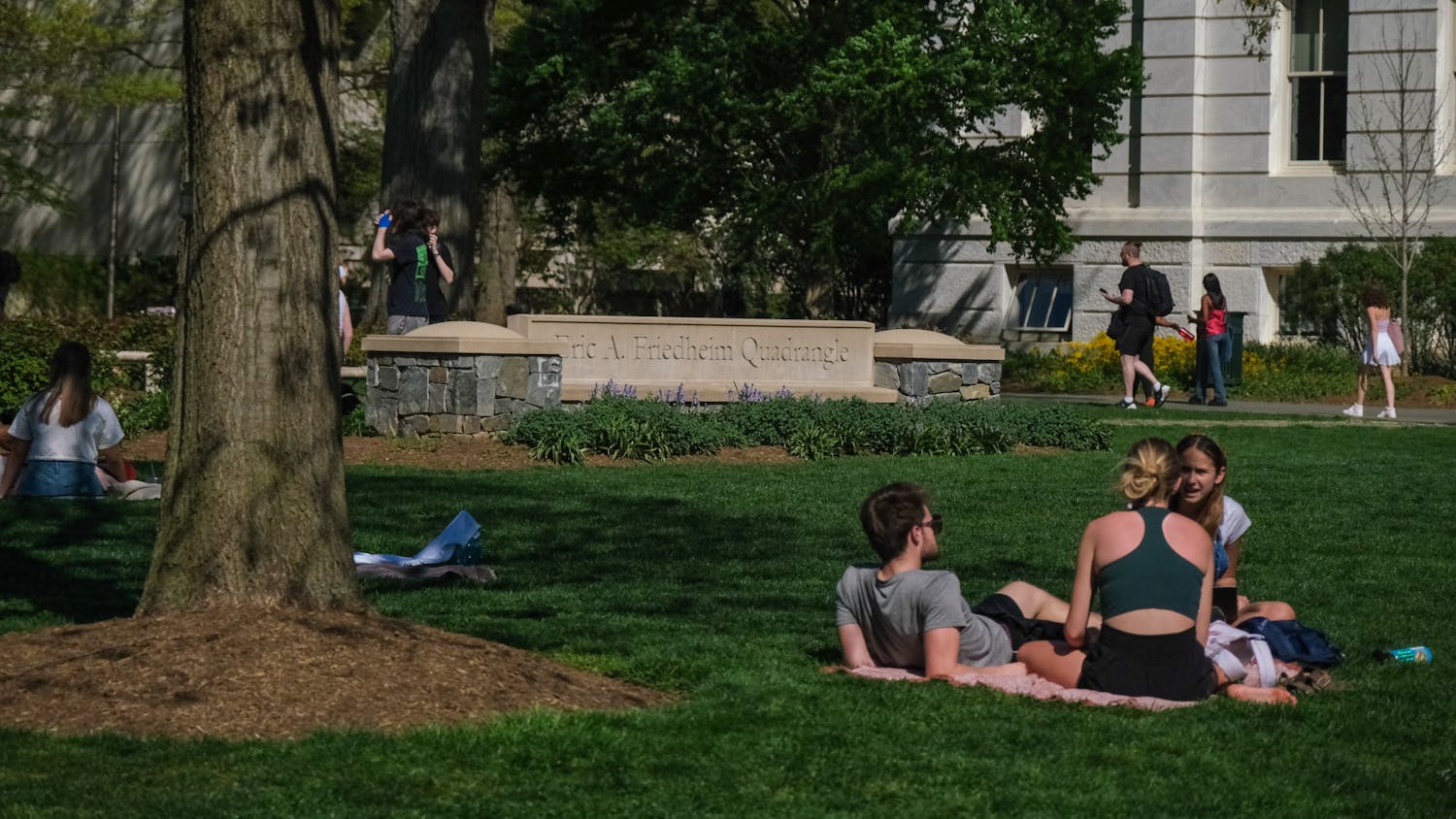The Undergraduate Senate created a new, redesigned Board of Elections after it removed the former BOE members from power March 3.
Former BOE members were removed after holding a private meeting on Feb. 26 to make amendments to the election policy book that the Senate had already approved on Feb. 24, according to Speaker for the Undergraduate Senate Alex Iannacio.
The amendments denied Student Government members' right to campaign for other candidates, and Director of Student Activities Karen Gerlach asked the Senate to correct the changes before the elections, according to Iannacio.
"The administration thinks it's blatant disregard of students' rights," Iannacio said. "All persons should be treated equally, no matter what organization or affiliation you have."
The Senate dissolved the BOE by passing the "Bill for Fairer and Freer Elections" that:
• reduces the size of the new Board
• creates a new prosecutor position that is separate from the BOE and can file charges against campaigns or candidates during elections
• bans leaves of absences for BOE members during elections
SG President Emily Yu and Iannacio will appoint the five new BOE members and the chair, who will then be approved by the Senate, according to the bill. The speaker, SG president and Judicial Board Chair James DeLucia will run the spring elections until the BOE positions are filled, according to the bill.
"Hopefully, this [bill] will make the elections smoother moving forward and be as least disruptive [to the elections] as possible," Class of 2013 Sen. Brett Atanasio said.
The "Bill for Fairer and Freer Elections" is a new version of a bill passed on Feb. 24. The original "Bill for Fair and Free Elections" would have come into effect after spring elections, according to Atanasio. However, the new "Bill for Fairer and Freer Elections" proposed on March 3 makes the BOE reform effective immediately.
Former BOE turns to J-Board to determine legality of dissolution
Former BOE Chairman Mike Morgante claims that the "Bill for Fairer and Freer Elections" violates SG's bylaws and has asked the Judicial Board to postpone the spring elections and the bill's changes.
SG's bylaws state that changes to election policy take effect three weeks after they are made.
The Judicial Board is currently reviewing Morgante's claim that the bill violates this three-week rule, according to Morgante.
"If [the Senate] had a problem with [the policy amendments], their recourse was to take us to the Judicial Board," Morgante said. "It wasn't to disband an entire body of Student Government duly constituted under the bylaws."
However, the Senate has the authority to dissolve the BOE, according to Atanasio.
"It is the unilateral and unquestionable authority of the senate to revise its bylaws in whatever way it sees fit," Atanasio said during the Senate meeting.
Morgante informed Vice President of Campus Life Gail Hanson of the BOE's complaints on March 5 and plans to discuss the legality of the bill with Gerlach, he said.
"As this [bill] is an unheard-of act, the Board finds this absolutely illegal and [we] are pursuing [it] on several different grounds," Morgante said.
Private amendments to election policy book contribute to former BOE dissolution
The Senate did not approve of the BOE's policy amendments, yet potential spring candidates were informed of these policies and not the Senate-approved policy book at the first information session on Feb. 27, according to Iannacio.
Furthermore, the policy amendments had to be sent to the speaker within 12 hours of the changes, and they were not, according to Iannacio.
However, the BOE had the right to amend the election policy book, according to Morgante.
According to former BOE member David Komorowski, the BOE added rules that said:
current SG members could not campaign for other candidates
candidates must hand in receipts to keep track of their spending
"[SG] is a clique . . . our policy that we passed, which is keeping with ethical and judicial standards, sought break up that clique and to encourage new people to get involved," Morgante said.
Future informational sessions will be run by the speaker, SG president and Judicial Board chair using the Senate-approved policy book, according to Iannacio.
KSCHNECK@theeagleonline.com




